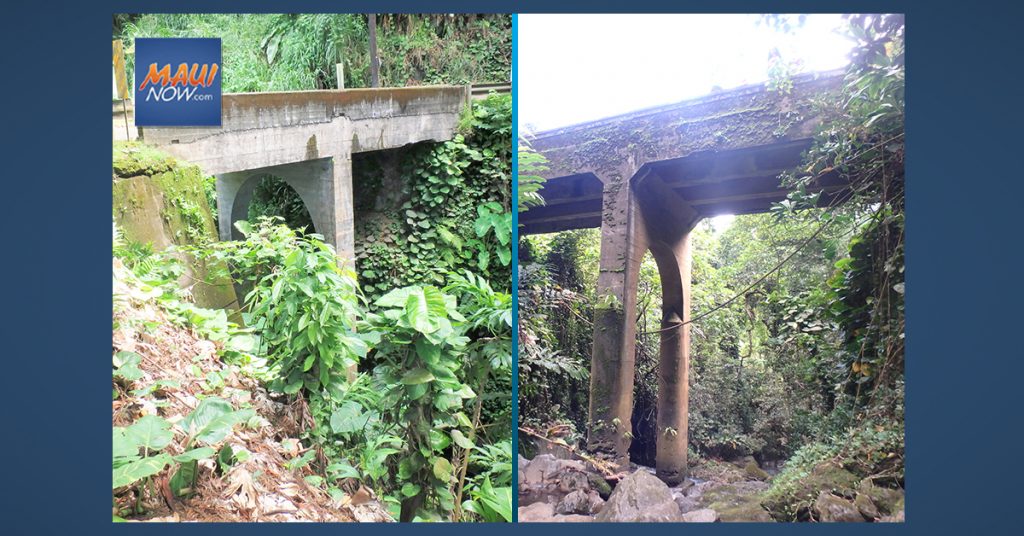Hawaiʻi receiving $339 million for bridges from new federal infrastructure law

As a result of the new Bipartisan Infrastructure law, Hawai‘i will receive $339 million in federal funding over five years, including $67.8 million in 2022, for bridges in need of repair or replacement around the state.
The funding comes from the US Department of Transportation’s newly launched Bridge Replacement, Rehabilitation, Preservation, Protection and Construction Program. It was created by the Bipartisan Infrastructure Investment and Jobs Act, which was spearheaded by the Biden Administration, passed by Congress and signed into law Nov. 15, 2021.
This is the largest bridge program in American history, with $26.5 billion to be allocated to state governments and $825 million to tribal governments over the next five years.
Additionally, the Federal Highways Administration also will soon publish guidance on the new program that will make it easier to fix city- and county-owned bridges, not just those on federal-aid highways. It will assist Hawaiʻi’s four counties to ensure smaller bridges throughout the islands are also eligible for federal funding.
There are an estimated 84 bridges and more than 664 miles of highway in poor condition in Hawaiʻi, including 18 in Maui County. Some of these poor-rated bridges carry high traffic volumes and are several decades old, including the 40-year old Piʻilani Highway bridges over Waipuʻilani Gulch, Kūlanihākoʻi Gulch and Waiakoa Gulch, each of which carries 42,400 vehicles daily. There are 11 century-old bridges along Hāna Highway.
On Molokaʻi, the 55-year old Kamehameha V Highway bridge over Honouliwai Stream also is rated as “poor,” and is a lifeline for residents of the east side of the Friendly Isle.
“The Bipartisan Infrastructure Bill is already producing results for Hawaiʻi,” said Tyler Dos Santos-Tam, Chair of the Democratic Party of Hawaiʻi. “Over the next five years we can expect to see this federal funding in action to repair bridges throughout the state, as these bridges are key economic and transportation lifelines for communities throughout the islands.
“Notably, the federal government will make it easier for counties to access funding to help repair bridges, which is so important for smaller bridges in neighborhoods throughout the state.”
States normally must match federal funding with up to 20 percent of state or local funding, but the guidance issued today said federal funds can be used for 100% of the cost of repairing or rehabilitating locally owned off-system bridges.
From the federal infrastructure law, Hawaiʻi also can expect to receive approximately $27 million over five years to reduce transportation-related emissions and $31 million over five years to increase the resilience of its transportation system.
This is in addition to the approximately $1.5 billion over five years in Federal highway formula funding for highways and bridges the state ordinarily would receive.
“This historic investment will help rebuild bridges across Hawai‘i, making them safer and more resilient for everyone,” said US Sen. Brian Schatz (D-HI), Chairman of the Senate Appropriations Subcommittee on Transportation and Housing. “The bipartisan infrastructure law is already helping our state, and I’m proud to have supported it.”
A map of deficient bridges across the state may be generated by going to https://infobridge.fhwa.dot.gov/Data/Map, and selecting “Hawaiʻi” under State and “Poor” under Bridge Condition.
To see a Google sheet of all Hawaiʻi bridges in “poor condition,” click here.










